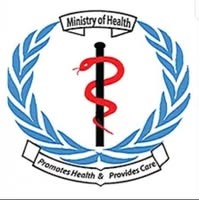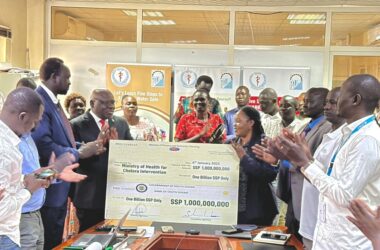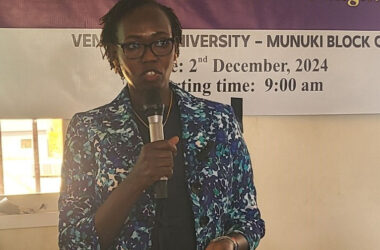By Alan Clement
Lakes State has launched mass drug administration campaign aimed at eliminating three debilitating parasitic diseases; onchocerciasis (river blindness), lymphatic filariasis (elephantiasis), and bilharzia.
The initiative targeting over a million residents across six counties is one of the largest public health interventions in the region, signaling a renewed commitment to tackling neglected tropical diseases that have long burdened rural communities in South Sudan.
In an exclusive interview with No.1 Citizen Daily Newspaper, the State Director General in the Ministry of Health, Maker Malok, confirmed that the five-day campaign is currently being undertaken in Rumbek Central, Rumbek North, Rumbek East, Cueibet, Yirol West and Yirol East acknowledging that the campaign had already been completed in April in Wulu County.
According to Maker, Awerial County will be the final target area of this campaign with vaccination expected to commence once the ongoing campaign in the six counties is concluded. “Awerial presents a unique case due to the presence of all three different diseases; onchocerciasis, elephantiasis and bilharzia which necessitate simultaneous distribution of the drugs: Ivermectin, Diethylcarbamazine (DEC), and Praziquantel respectively,” Maker stated.
He further added that the campaign started with intensive training of supervisors and Community Drug Distributors (CDDs) at both payam and boma levels. “These CDDs are involved in house-to-house visits to administer the medicines using the standard dose poles to determine dosage based on a person’s height,” Director Maker remarked.
The State Health Director General emphasized that medications will not be administered to pregnant women, children under five, severely ill individuals, and lactating mothers who delivered within the past week of the CDDs’ visit.
State and county officials are expected to conduct supportive supervision, guided by structured monitoring tools and questionnaires in an effort to monitor the accuracy and effectiveness of the MDA.
The Director General acknowledged ongoing community resistance, fueled by misconceptions about free medication as key challenges the CDDs are facing in executing their activities. “Some people think these illnesses only affect people in remote villages, others claim to feel healthy and therefore do not need the drugs,” he said. “There is even suspicion that free medicine might be harmful,” he continued.
Maker stressed that Health Ministry is running radio talk shows and also engaging church leaders, chiefs and community elders to sensitize the public on the importance of the exercise in an effort to combat such misconceptions.
He praised the national Ministry of Health for spearheading the initiative with support ranging from technical training, drug distribution to payams and counties, to pre-campaign community engagement and preparation.
“Their support has been critical in making this possible,” he added.
The Director General appealed to every resident, whether in rural areas or towns, to accept the drugs and cooperate with the campaign teams because the only way to eradicate these neglected tropical diseases is through collective action.




